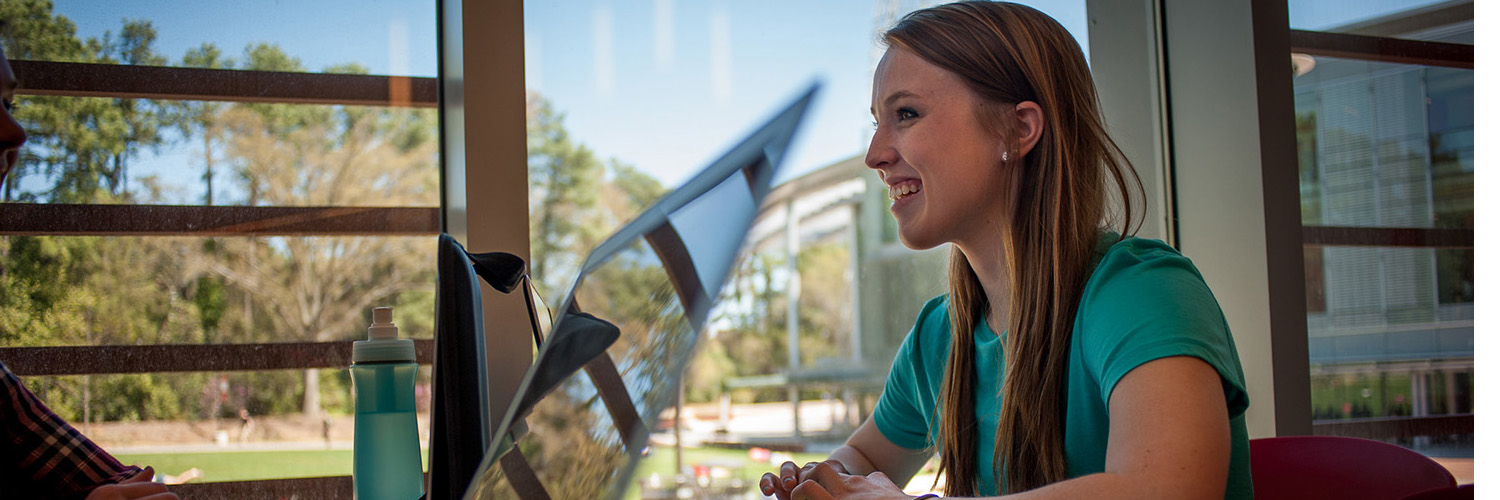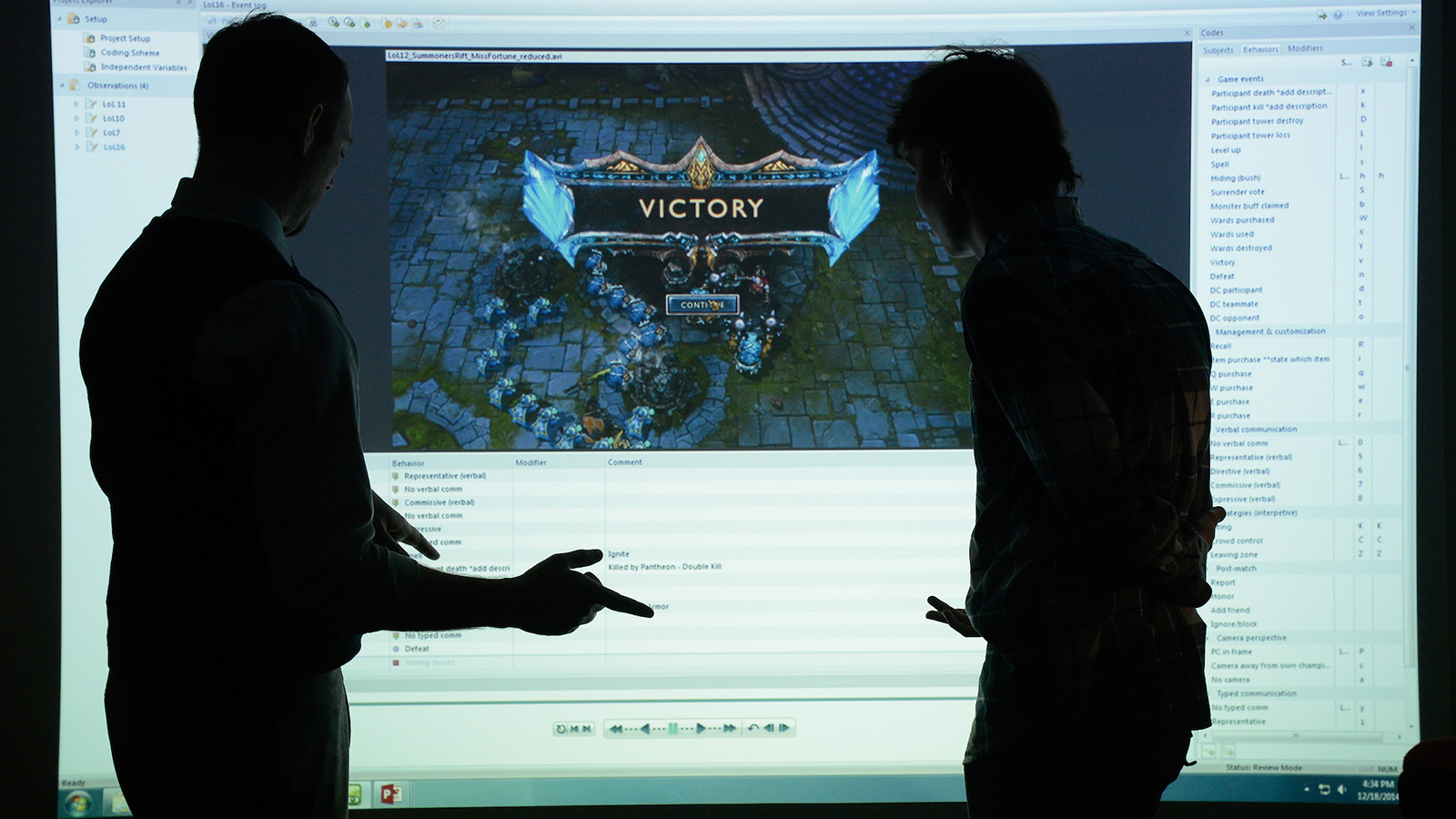The M.S. in Technical Communication is a 33-hour program that empowers students for careers in web design, UX, software documentation, medical communication, usability and more.
Led by our nationally recognized faculty in the heart of North Carolina’s growing tech region, our program will help you hone your expertise as a user advocate and information developer.
Admission Info
Our program is small, so we can focus on you. We admit 10 to 20 students each year, many of whom already work as technical communicators and industry professionals. Our students have undergraduate degrees in the humanities as well as the technical, natural and social sciences. We also offer fully-funded graduate teaching assistantships to top applicants.
Application Deadlines
- Feb. 1 to be considered for teaching assistantships
- June 15 for admission only.

Degree Requirements
We’ve designed our 33-hour program to meet your needs. Core courses (15 hours) will give you a critical understanding of the role of communication in science and technology, as well as practical competence in communication techniques. Electives (18 hours) allow you to customize your studies to pursue your specific interests.
Since many of our students work full-time, we offer core courses at night. You can access NC State’s inter-institutional relationship with area schools such as Duke University and UNC-Chapel Hill to take electives that count toward your degree.

Program Outcomes
An M.S. in Technical Communication degree can help launch or grow your career in our rapidly-changing high-tech world. It can position you to advance into a management role. Or it can prepare you for doctoral education such as NC State’s interdisciplinary Communication, Rhetoric and Digital Media program.
Job titles for recent alumni include:
- Instructional Designer
- Senior Vice President, Experience Design
- Technical Writer
- Contract Negotiator
- Vice President for Sales and Marketing
- Information Developer
- Data Analyst
- Senior Content Editor
- Testing Technician
- Marketing Writer
- Lecturer
Contact Info
Director, M.S. in Technical Communication
Dr. Douglas Walls
Campus Box 8105
NC State University
Raleigh, NC 27695-8105
919.515.4135
dmwalls@ncsu.edu
Graduate Services Coordinator
Ciru Mutura
Campus Box 8105
NC State University
Raleigh, NC 27695-8105
919.515.4106
graduate-english@ncsu.edu
Career Opportunities
Graduates of the Master of Science in Technical Communication program become valued employees for business, industry, government and educational organizations. The broad experience and training you gain here will prepare you to contribute and lead in a range of careers, including:
- Web Design and Development
- Software and Hardware Documentation
- Usability Testing for Documentation
- Industrial Training and Development
- Medical Communication
- Environmental Communication
- Agricultural Communication
- Technology Transfer
- Organizational Information Management
- Human-Computer Interface Design
- Legal Aspects of Communication
In many areas, a Master of Science degree helps qualify professionals to move into management positions. Our placement rate for graduates of the program is excellent. Popular employers include IBM, Lenovo, SAS, Redhat, RTI International, NetApp, Cisco, NC State, Duke and UNC, among others.
You may also opt to continue your education through our Ph.D. program in Communication, Rhetoric and Digital Media.
Other Resources
ENG 522: Writing in Non-Academic Settings
This course provides MSTC students directed work experience including work-site mentoring and evaluation and concurrent academic assignments. This course is completed half in the classroom and half in the field at job or internship for 120 hours. The instructor helps students identify internship or co-op opportunities using campus and program resources. The classroom portion of the course enables students to discuss readings about writing in the workplace as well as share personal work experiences. Written assignments often have students evaluate their own experiences and learn about developing their strengths and weaknesses.
IBM Pathfinder Mentoring Program
The IBM Pathfinder program is a great opportunity for MSTC students to learn more about technical communication in the workplace. Students sign up to receive an IBM mentor and take part in events such as resume workshops, job shadowing day, IBM lab tours, and much more. Students meet with their IBM mentors on a monthly basis to receive suggestions on their career development and professionalization. The mentoring program also provides great networking opportunities to meet and talk with peers and renowned professionals.
The Technical Communication Association (TCA)
The Technical Communication Association is a student organization that is specifically affiliated with the Technical Communication program, and it is free to join. Leadership and membership opportunities in TCA are also available for all MSTC students. This group made up of current students, faculty and alumni provides opportunities for MSTC students to get more involved in their field and community. TCA annually hosts SpeedCon, a local conference where technical communication students can present topics relevant to their community. TCA is also involved with local career fairs and maintains connections with alumni who work in the field at tech companies such as Red Hat and IBM, as well as communications with the local Society for Technical Communication chapter.
